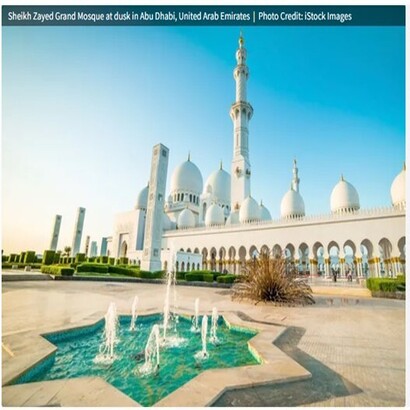As published in Times Now Digital
Abu Dhabi’s new law — the first civil law passed by the Emirates concerning non-Muslim family matters — is a gamechanger for the UAE’s talent acquisition.

KEY HIGHLIGHTS
______________________________
• A new court will be established in Abu Dhabi to handle non-Muslim family matters that will operate both in English and Arabic.
• The new civil law for non-Muslims covers marriage, alimony, divorce, inheritance, joint child custody and proof of paternity, besides other clauses.
• The decree aims to “enhance the position and global competitiveness of the emirate as one of the most attractive destinations for talent and skills.”
Non-Muslims in Abu Dhabi will now be allowed to marry, divorce and get joint child custody under a new civil law, as per the decree issued by its ruler on Sunday. The decree from Abu Dhabi’s ruler Sheikh Khalifa bin Zayed Al-Nahyan — who is also president of the UAE federation of seven emirates — will only affect Abu Dhabi and not the other six emirates.
The decree states that the new law will cover civil marriage, divorce, alimony, joint child custody and proof of paternity and inheritance. It is the latest step by the country to maintain its competitive edge as a regional commercial hub and the first civil law passed by the Emirates concerning non-Muslim family matters. To put it in the words of the Judicial Department of Abu Dhabi, this move will provide “a flexible and advanced judicial mechanism for the determination of personal status disputes for non-Muslims, thus enhancing the Emirate’s position and global competitiveness as one of the most attractive destinations for talent and skills.” The law aims to guarantee the right to non-Muslims to adhere to an “internationally acknowledged law” that covers customs, culture, language and protecting the best interests of the children. Simply put, Abu Dhabi strives to come across as more inclusive to accommodate a large diaspora of non-Muslims.
Before this, non-Muslims in the UAE capital had to get married in the embassy or consulate of their country, and personal status laws on marriage and divorce had been based on Islamic Sharia principles, as is the case in other Gulf states.
How did things stand earlier?
As per the Sharia law, the marriage can be conducted only if both, the bride and the groom are Muslims, or if the groom is Muslim and the bride is either Jew, Christian or a Zoroastrian — basically Ahl al-Kitaab, or ‘People of the Book’. Note that only Muslim men are allowed to marry non-Muslim women. This is not applicable for Muslim women, according to the Sharia.
Further, for non-Muslims in Abu Dhabi, physical harm had to be proved as a ground for divorce. Even after the file for divorce, couples had to go to the Family Guidance department and a court-appointed conciliator tried to reconcile the two partners. Even after the divorce was granted, the issue of child custody was mired in technicalities. As per the old law, “Custody and guardianship are two separate issues that must be addressed individually as parents do not share equal responsibilities for a child in the UAE.” The child’s custody would be with the mother and the father was a guardian, meant to provide financially for the child.
What has changed now?
The new law will bring about a paradigm shift for non-Muslims in the Emirate. For starters, the new law does not require the consent of the woman’s guardian anymore, as was earlier mandated by the Sharia law. It only requires the will of the man and woman for the marriage.
In case the couple wants a divorce, non-Muslims can now seek one without having to prove physical harm was done in the marriage. Further, either of the spouses can file for divorce. The new law allows both parents to have joint custody of the child and equally share the custody after divorce.
The new law comes in line with UAE keeping with changing times and reforming laws as and when necessary. The big step was in 2020 when UAE reformed the laws to decriminalise premarital sexual relations and criminalise honour killing. It “reflects Abu Dhabi’s legislative leadership and the global status it has achieved.”



